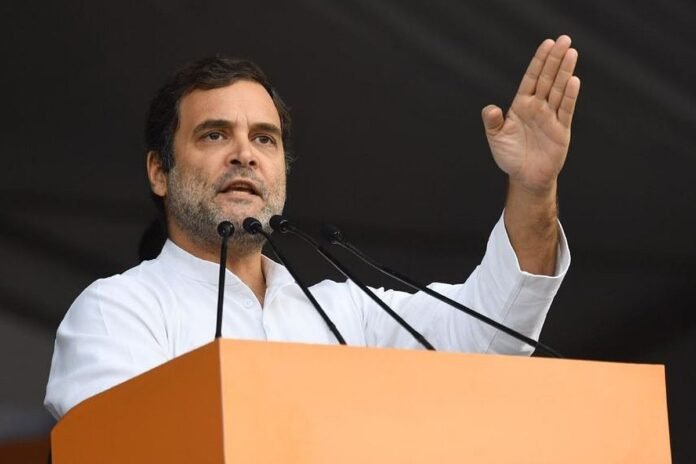One decision that has been the subject of much speculation and debate is whether Rahul Gandhi, scion of the Nehru-Gandhi family and former Congress president, will contest from the traditional family bastion of Amethi in the upcoming elections. Amidst mounting anticipation, Rahul Gandhi recently addressed the media, stating, “I will do what the party will decide,” igniting further curiosity and conjecture among political observers and the public alike.
For decades, Amethi, located in the state of Uttar Pradesh, has been considered a stronghold of the Nehru-Gandhi family, with generations of leaders from the dynasty representing the constituency in the Indian Parliament. Rahul Gandhi himself has a deep-rooted connection with Amethi, having won the seat multiple times in the past and fostering strong ties with the local populace. However, in the 2019 general elections, Rahul Gandhi faced an unexpected defeat in Amethi at the hands of BJP’s Smriti Irani, leading to speculations about his future electoral plans.
Rahul Gandhi’s recent statement regarding contesting from Amethi has sparked a flurry of conjectures and analyses within political circles. Some view it as a sign of his willingness to reclaim his political turf and reassert the Congress party’s presence in the region. They argue that Rahul Gandhi’s return to Amethi would not only boost the morale of party workers but also send a strong message to voters about his commitment to serving the constituency and addressing their concerns.
On the other hand, skeptics interpret Rahul Gandhi’s statement as indicative of his openness to alternative electoral strategies and a willingness to prioritize the broader interests of the Congress party over personal considerations. They suggest that Rahul Gandhi’s decision to contest from Amethi or opt for a different constituency may hinge on various factors, including electoral dynamics, strategic calculations, and the evolving political landscape in Uttar Pradesh.
The prospect of Rahul Gandhi’s return to Amethi has evoked mixed reactions among constituents and political observers. While some view it as a positive development that could invigorate the Congress party’s electoral prospects in the region, others express skepticism about the efficacy of such a move, citing the challenges posed by formidable opponents and changing voter preferences.
Moreover, Rahul Gandhi’s statement underscores the complex interplay between individual aspirations and party imperatives within the realm of Indian politics. As a prominent leader within the Congress party, Rahul Gandhi’s decisions carry significant weight and have far-reaching implications for the party’s fortunes and electoral strategies. His willingness to defer to the party’s decision reflects a commitment to collective decision-making and a recognition of the importance of cohesive party unity in navigating the political landscape.
At the same time, Rahul Gandhi’s approach highlights the evolving nature of political leadership in contemporary India, where leaders are increasingly expected to strike a delicate balance between personal ambitions and organizational priorities. In an era marked by rapid social and political transformations, leaders must demonstrate adaptability, pragmatism, and a willingness to embrace change to remain relevant and effective in their roles.
As the political landscape continues to evolve in the run-up to the upcoming elections, all eyes will be on Rahul Gandhi and the Congress party to see how they navigate the complex challenges and opportunities that lie ahead. Whether Rahul Gandhi ultimately decides to contest from Amethi or pursue alternative electoral strategies, his actions will undoubtedly shape the contours of Indian politics and influence the trajectory of the Congress party in the months and years to come.
In the midst of uncertainty and speculation, one thing remains clear: Rahul Gandhi’s statement underscores his commitment to the principles of democratic decision-making and his unwavering dedication to serving the interests of the Congress party and the people of India. As the political landscape continues to unfold, Rahul Gandhi’s words serve as a reminder of the enduring values of integrity, transparency, and collective responsibility that are essential for the vitality and vibrancy of India’s democracy.

